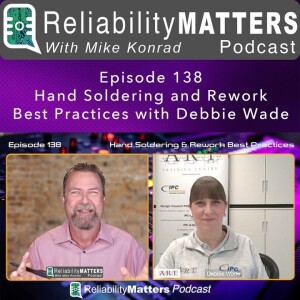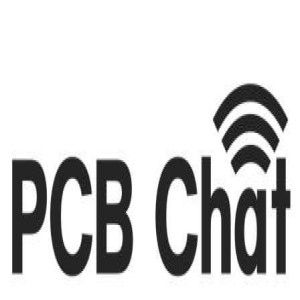
Today we're diving deep into the world of precision and craftsmanship—two crucial elements in the realm of hand soldering and rework of circuit assemblies.
Whether you're a seasoned electronics enthusiast, a hobbyist, or just someone with a curious mind, this episode promises to demystify the art and science behind hand soldering and rework. We'll be exploring the latest tools, techniques, and trends that define this intricate process, shedding light on the unsung heroes who meticulously bring circuit assemblies to life, or in the case of rework, back to life.
There is archaeological evidence that soldering was employed as early as 5,000 years ago in Mesopotamia. Soldering and brazing are thought to have originated very early in the history of metal-working, before 4,000 BC. Sumerian swords from 3,000 BC were assembled using hard soldering techniques.
While soldering applications have morphed and expanded over the centuries, the basic “rules” of soldering have not. On this episode, we’re going to talk about an obvious soldering application, at least to my audience, and that’s soldering of electronic assemblies.
From the evolution of hand soldering with numerous technological advancements to the challenges faced by DIYers and professionals alike, we've got it all covered, thanks to Mike Konrad's subject matter expert guest, Debbie Wade.
Wade is managing director of ART A-R-T, Advanced Rework Technology, a fully independent training organization, which has been presenting various training courses for over 30 years. She has been in the electronics industry for over 20 years with the last 15 of those years at Advanced Rework Technology.
Wade comes to us well-credentialed. She chairs the IPC-A-620 Training Committee and IPC European Training Committee, and with her Master IPC Trainer status for IPC-A 600, 610, 620, 7711/21 and J-STD 001 is an expert in the field of fabrication, assembly, process and acceptance of board and cable assemblies.
She has been presented with numerous awards from IPC in recognition of her contribution to IPC standards and training courses.
So, grab your soldering iron (metaphorically speaking), get ready to dive into the flux, and join us as we unravel the secrets of successful hand soldering and rework. Stick around for valuable insights, practical tips, and maybe even a few stories from the trenches of hand soldering and re-work.
Chapters:
00:00:00 - The Art and Science of Hand Soldering and Rework
00:03:01 - The Unique Art of Hand Soldering, Featuring Debbie Wade
00:06:30 - The History of Advanced Rework Technology (ART)
00:09:57 - The Impact of IPC Certification on Careers and Companies
00:13:14 - Investing in the Right Equipment for Soldering and Rework
00:16:22 - Controlling Heat in Soldering
00:19:24 - Creating the Heat Bridge
00:22:29 - Challenges in Soldering Electronic Components
00:25:39 - The Dangers of Using Soldering Guns for Electronics
00:28:32 - Common Mistakes in Hand Soldering
00:31:42 - The Importance of Flux in Soldering
00:34:38 - Proper Flux Application and Potential Issues
00:37:35 - The Problem of Flux Buildup on Test Points
00:40:50 - Appearance vs Function in Solder Joints
00:43:42 - Choosing the Right Soldering Iron
00:46:55 - Safety Precautions in Hand Soldering
00:49:50 - Appearance and Plating Issues
00:52:48 - Inspecting Different Classes of Products
00:55:39 - The importance of human control in machine programming
00:58:45 - Bespoke courses and certifications for inspectors
01:02:01 - The Importance of Proper Component Selection and Soldering
01:05:09 - Differences in Soldering Dummy Parts
01:08:04 - The Art of Hand Soldering
01:10:55 - The Importance of Reliability
More Episodes
Create your
podcast in
minutes
- Full-featured podcast site
- Unlimited storage and bandwidth
- Comprehensive podcast stats
- Distribute to Apple Podcasts, Spotify, and more
- Make money with your podcast
It is Free
- Privacy Policy
- Cookie Policy
- Terms of Use
- Consent Preferences
- Copyright © 2015-2024 Podbean.com







